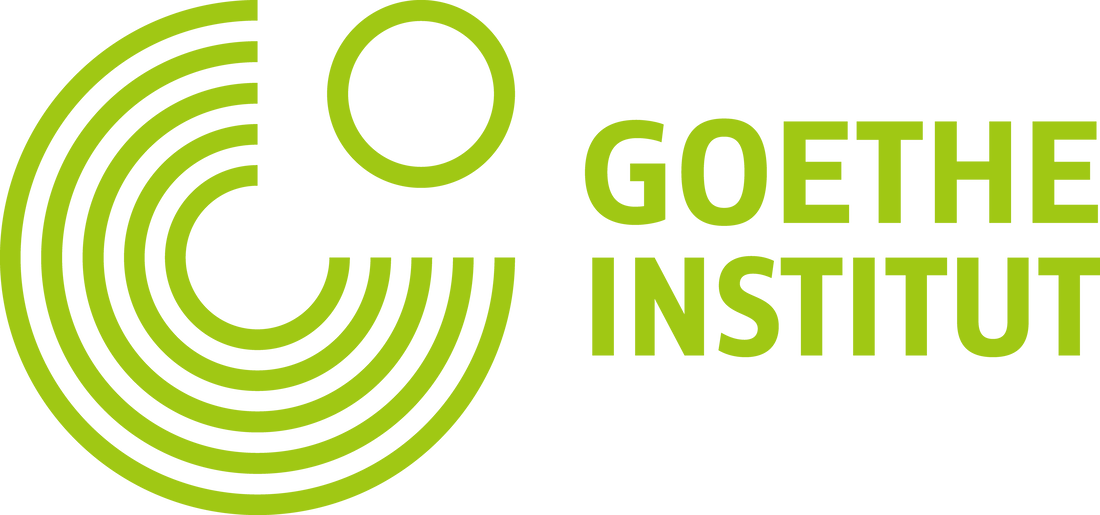How To Workshop Series - Workshop #4
|
|
Συλλογικό βίντεο των αποτελεσμάτων του εργαστηρίου.
Βίντεο των συμμετεχόντων: Stephanie Felber (επάνω αριστερά), Λία Ψωμά (επάνω δεξιά), Ήρα Μπλιάτκα (κάτω αριστερά), Κατερίνα Αθανασοπούλου (κάτω δεξιά). |
Collective video of the workshop results.
Videos by participants Stephanie Felber (top left), Lia Psoma (top right), Ira Bliatka (bottom left), Katerina Athanasopoulou (bottom right). |
|
"Με παράδειγμα εφαρμογής το ιδιοσυγκρασιακό αντικείμενο, εφαρμόστηκε μια κοινή μεθοδολογία παρακολούθησης και ερμηνείας του κάθε αντικειμένου. Η περιγραφή του κάθε ιδιοσυγκρασιακού αντικειμένου, χρησιμοποιώντας προσωπικούς συνειρμούς, κοινές μνήμες, μεταφορές και αλληγορίες, εφαρμόστηκε σε διαγράμματα σκέψης που περιλάμβαναν εικόνες, ήχους, κείμενο και κινούμενη εικόνα. Τα διαφορετικά αντικείμενα, μέσα από μια κοινή μεθοδολογία, παρήγαγαν μοναδικές περιγραφές μέσα από μια κοινή δομή οργάνωσής τους. Έτσι, το ατομικό και το συλλογικό συνδιαλέγονται και εμφανίζουν δυναμικές σχέσεις, ενισχύοντας και αποδέχοντας τη σημασία τους για μια κριτική ενδοσκόπηση του υποκειμένου σήμερα."
Λίνα Μαντίκου |
"Using the example of the idiosyncratic object, a common methodology for reading and interpreting each object was applied by the participants. The description of each idiosyncrasy, using personal associations, common memories, metaphors, and allegories, was applied to "mind maps", that included images, sounds, text, and animation. Through this methodology, the different objects produced unique descriptions through a common structure. Thus, the individual and the collective communicate and show dynamic relationships, strengthening and accepting their importance for a critical introspection of the subject today."
Lina Mantikou |
about the workshop
The way we feel with all our senses -live, interact, communicate, remember, fantasise- creates our very personal compass, by which we float and navigate through life. This might be the reason we choose the things that surround us in our homes, rooms, closets. What happens in the social media sphere? The design of life through the curating of the self -a tendency that’s been becoming stronger and stronger due to the rising omni-presence of social media- has also become central in the space of communication (interaction between the members of a community), which in turn has dominated the confinement during the covid-19 pandemic. Influencers developed their online persona even further sharing their daily routines of cooking, cleaning, reading - living in their homes, proposing how to live our quarantine “better”. Following their example, seeing also ourselves as designers and curators in the making, we try to identify our relationship with our objects. Revealing the story behind the idiosyncratic object, the workshop reveals a new approach to living and functioning in our homes, and a new, idiosyncratic design methodology. The result -a newly-designed object- may define a whole new system of feeling, understanding, living and experiencing - inside our homes and outside.
the idiosyncratic object
during the pandemic crisis and beyond
#stayathome became a new motto in our lives because of the covid-19 pandemic crisis. While staying home we cooked more, slept more, saw more outside our windows, watched more on our screens, cleaned everything inside out. Home transformed into an intermediate space between personal and public space, and we cultivated a more intimate, idiosyncratic relationship with it, by realising, remembering and fantasising our lives in it. Could this home introspection lead to an alter way of designing it? What about the objects we use -or don't use- on a daily basis?
transforming the intermedium
The workshop borrows tools and techniques from design and curating, using the moving image as a medium for understanding, interpretation and design. As a conclusion, all new “i-d objects” designed during the workshop, will be curated and presented in a common space.
the idiosyncratic object
The first part of the workshop focuses on describing the "idiosyncratic object". Which is that intimate, personal, idiosyncratic object we all have, that encompasses our unique understanding of everything that surrounds us? What is its position in our home and in our daily lives? What does it look like, what does it feel like, how does it smell, what is it made of? My mug, my pillow, my chair, my spoon, now more than ever, matter more. Each object carries a unique story, that defines a hyper value for its owner - the hidden meaning and connotations that make it utterly idiosyncratic. Me and my object, like magnetic poles, construct an intermedium space. During the workshop, participants identify, decompose and reimagine their own idiosyncratic object, with all its connotations and rituals.
I-D Matters
The second part of the workshop focuses on the value of materiality. The word “matter” has a complex meaning in our daily rituals, referring both to value (personal, ethical, common, purchase etc) and to material. Does idiosyncratic materiality transform matter into identity? How can the narrative of the idiosyncratic object (identified in the first cycle) be transformed into a matter of identification? Linguistic and constructional tools -metaphors, allegories, breaking, cutting, reinforcing, touching, folding, bolting- which reflect a very personal need or intimate experience connected to the idiosyncratic object, are translated into gestures that transform it. During the workshop, a new object is designed, a hybrid between a real and an imaginary object.
about Lina Mantikou
Lina Mantikou (1987) is a PhD candidate at the Department of Architecture - National Technical University of Athens, thanks to a fellowship from the Special Research Fund (ELKE NTUA). She graduated from the undergraduate department of Architectural Engineering of the University of Thessaly (2011) and from the interdisciplinary postgraduate program "Design-Space-Culture" of the Department of Architectural Engineering of NTUA, thanks to a scholarship from the State Scholarships Foundation (IKY, 2015).
She has participated in the 15th Biennale of Young European and Mediterranean Artists (2011), The Symptom Project: "A-stochia (Miss-fire)" (2014), "POSTPRODUCTS" (2013), "Sanatorioproject" (2011) and "Sanatorioproject II" (2012). She has curated the group exhibition "#theReflectionOfThePlate", at the Museum of Gastronomy in Athens (2015) and she has coordinated the workshop "Transformations of Intermediate" at the Post-Industrial Design Postgraduate Program at the Department of Architecture of the University of Thessaly (2020).
Currently, she participates in the research program "I-D (I-Design _ Idiosyncratic Meta Design) - Idiosyncratic Processes on Reading and Producing Post-Object in Modern Industrial Design" with Th. Zafeiropoulos, A. Psychoulis and A. Farangas. She also provides assistant teaching work at the Department of Architectural Engineering of the NTUA on various subjects, among which 3rd year Plasticity and Architectural Composition. She lives and works in Athens.
She has participated in the 15th Biennale of Young European and Mediterranean Artists (2011), The Symptom Project: "A-stochia (Miss-fire)" (2014), "POSTPRODUCTS" (2013), "Sanatorioproject" (2011) and "Sanatorioproject II" (2012). She has curated the group exhibition "#theReflectionOfThePlate", at the Museum of Gastronomy in Athens (2015) and she has coordinated the workshop "Transformations of Intermediate" at the Post-Industrial Design Postgraduate Program at the Department of Architecture of the University of Thessaly (2020).
Currently, she participates in the research program "I-D (I-Design _ Idiosyncratic Meta Design) - Idiosyncratic Processes on Reading and Producing Post-Object in Modern Industrial Design" with Th. Zafeiropoulos, A. Psychoulis and A. Farangas. She also provides assistant teaching work at the Department of Architectural Engineering of the NTUA on various subjects, among which 3rd year Plasticity and Architectural Composition. She lives and works in Athens.
HOW TO WORKSHOP 4 (2020)
Workshop leader: Lina Mantikou (Architect, PhD candidate, Department of Architecture, National Technical University of Athens)
Curators: Sotirios Bahtsetzis, Lydia Chatziiakovou, Christos Savvidis (ArtBOX.gr)
The workshop is based on the "Transformations of the intermedium" workshop, which took place in the context of the postgraduate program "Post-Industrial Design" of the School of Architecture of the University of Thessaly, Greece, two weeks before the country's lockdown due to the Covid-19 pandemic.
Workshop leader: Lina Mantikou (Architect, PhD candidate, Department of Architecture, National Technical University of Athens)
Curators: Sotirios Bahtsetzis, Lydia Chatziiakovou, Christos Savvidis (ArtBOX.gr)
The workshop is based on the "Transformations of the intermedium" workshop, which took place in the context of the postgraduate program "Post-Industrial Design" of the School of Architecture of the University of Thessaly, Greece, two weeks before the country's lockdown due to the Covid-19 pandemic.
practical info - applications
- The workshop is free and open to anyone -from anywhere, of any age, background, profession.
- In case there is a large number of applications, the workshop leader and curators will make a selection.
Meeting place: zoom
(accessible with free or no subscription)
Language: English
Technical Requirements:
- Familiarity with basic camera use
(or the use of a smart phone camera).
- Free version of premier or iMovie or other video editing programme (basic tutorial will be provided).
- Free version of zoom (no subscription requred).
- In case there is a large number of applications, the workshop leader and curators will make a selection.
Meeting place: zoom
(accessible with free or no subscription)
Language: English
Technical Requirements:
- Familiarity with basic camera use
(or the use of a smart phone camera).
- Free version of premier or iMovie or other video editing programme (basic tutorial will be provided).
- Free version of zoom (no subscription requred).
use of the material
During the workshop, zoom meetings are recorded. These recordings, as well as the material produced and submitted by participants during the workshop (images, videos, texts, sounds etc. - as they are or edited) may be used towards purposes of communication, research, as well as in the final outputs of Common Lab - manual, short film or other. In no case will the material be used for profit and without mention of the workshop and those involved.
By taking part in the workshop, participants grant the right of use of their material according to the terms hereby described.
By taking part in the workshop, participants grant the right of use of their material according to the terms hereby described.







